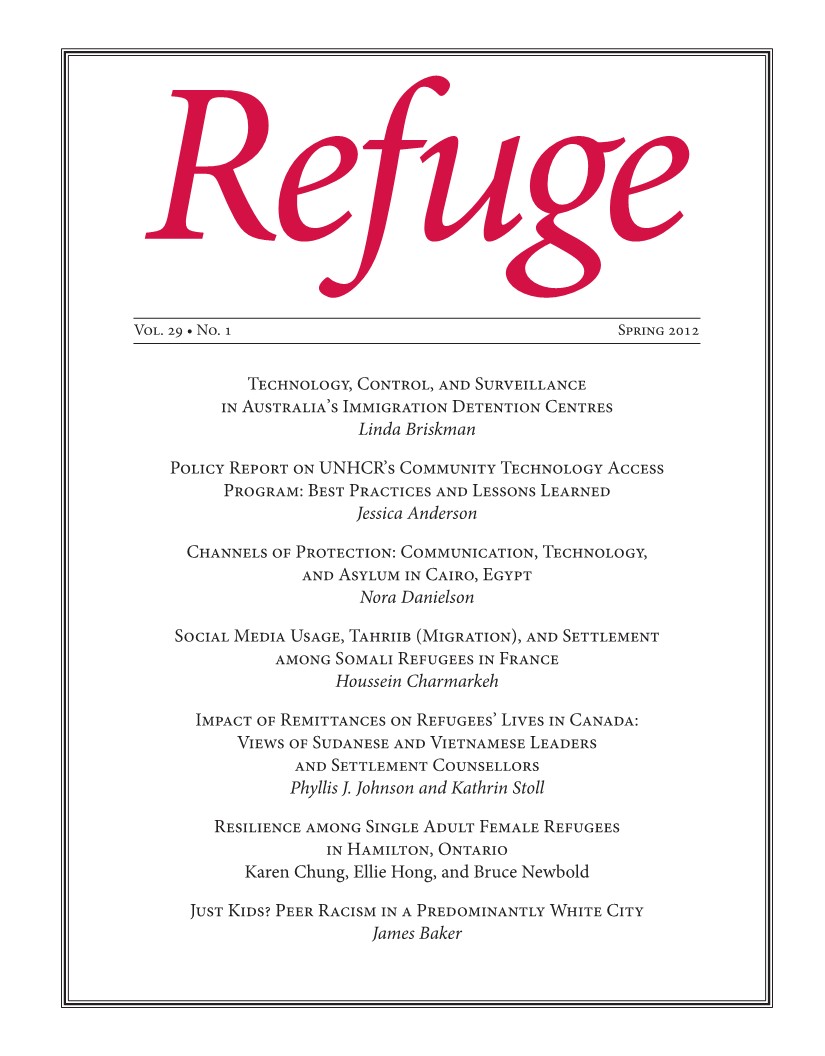Reimagining Asylum: Religious Narratives and the Moral Obligation to the Asylum Seeker
DOI:
https://doi.org/10.25071/1920-7336.37521Keywords:
Exodus, Bible, Hijra, Qu'ran, United States, asylum law, refugee subjectivity, narratives, asylum seekers, moral agency, supererogatory, ethicsAbstract
The narrative that grounds the asylum policy of the United States portrays asylum seekers as passive objects of external forces. This narrative emerges from the complex interplay of exceptionality and victimization that characterizes the legal status and popular perception of the refugee. It is then read back onto the asylum seeker through a supererogatory asylum policy that is unable to recognize the moral demand made by the asylum seeker. The project this essay is drawn from seeks to challenge the policy of asylum as charity by interrogating alternative narratives grounded in the Hebrew Bible story of the Exodus and the Qu’ranic story of the Hijra. In these narratives, flight from oppression is portrayed as an act of moral agency, and the asylum seeker’s capacity as Other to make a moral demand on the Self emerges. Thus, I argue that an asylum policy informed by these alternative narratives needs must question its supererogatory assumptions.
Metrics
Downloads
Published
How to Cite
Issue
Section
License
Copyright (c) 2013 Silas W. Allard

This work is licensed under a Creative Commons Attribution-NonCommercial 4.0 International License.
Refuge authors retain the copyright over their work, and license it to the general public under the Creative Commons Attribution-Non Commercial License International (CC BY-NC 4.0). This license allows for non-commercial use, reproduction and adaption of the material in any medium or format, with proper attribution. For general information on Creative Commons licences, visit the Creative Commons site. For the CC BY-NC 4.0 license, review the human readable summary.







